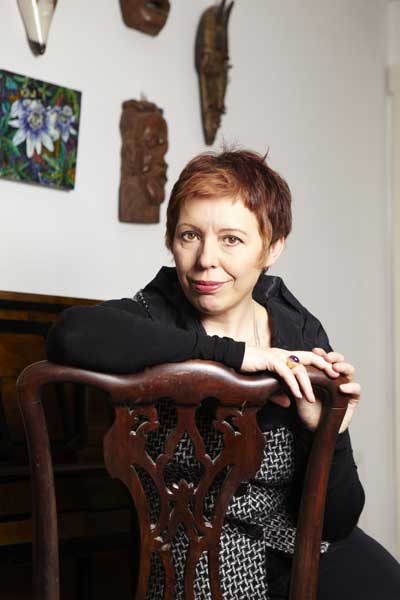
Your support helps us to tell the story
From reproductive rights to climate change to Big Tech, The Independent is on the ground when the story is developing. Whether it's investigating the financials of Elon Musk's pro-Trump PAC or producing our latest documentary, 'The A Word', which shines a light on the American women fighting for reproductive rights, we know how important it is to parse out the facts from the messaging.
At such a critical moment in US history, we need reporters on the ground. Your donation allows us to keep sending journalists to speak to both sides of the story.
The Independent is trusted by Americans across the entire political spectrum. And unlike many other quality news outlets, we choose not to lock Americans out of our reporting and analysis with paywalls. We believe quality journalism should be available to everyone, paid for by those who can afford it.
Your support makes all the difference.Barb Jungr’s applies a jazz singer’s art to the extraordinary lyrics which have filled rock and soul albums of the last, post-Dylan half-century.
The provoking title of her album The Men I Love: The New American Songbook (2010) threw open the locked door of jazz standards to include David Byrne, Leonard Cohen, Joni Mitchell and Neil Young (it’s a North American, Canadian-heavy songbook now), helping make Jungr a transatlantic jazz and cabaret star. As this evening in an intimate basement club shows, that’s down to the singer, not just the songs.
Jungr treads the fertile border between jazz and soul on new album Stockport to Memphis, including five of her songs. The title track is a theme tune to an English jazz life, and “New Life” casts her as a version of Billy Liar’s Liz, the Northern girl hungry for life who does go to London, and anywhere else she can reach. The autobiography can be challengingly specific: “Sunset to Break Your Heart” is “for anybody who went to the Isle of Skye for a camping holiday - and then divorced.” “When I think about it now, I want it much more,” she sings wistfully of young, lost love.
Simon Wallace and Jenny Carr back her on piano and keyboards. The piano melody of Jungr’s “Urban Fox” has rolling Nick Drake richness. Then there’s Hank Williams’ “Lost On the River”, notes picked out in mournful isolation, Jungr’s voice a broken caress, biting the word “life” bitterly. Her art lets words sink directly in, as with Mike Scott’s “Fisherman’s Blues”, sung with suppressed soaring, a wish for love made with quiet passion.
Jungr’s way of earthing the sometimes phantasmagoric fancies of her chosen singer-songwriters deposits the Devil of Tom Waits’ “WayDown in the Hole” among the abandoned warehouses and prim gardens outside this Chelsea club, but only punctures The Zombies’ gender-switched “He’s Not There”.
The vitality she brings to jazz can be better heard in Cohen’s “Everybody Knows”. Leaning against the piano like it’s a lamppost, she catches the song’s humour, and its apocalyptic sense of an unjust, uncertain present. Sam Cooke’s “Change is Gonna Come” finishes that thought: a series of Biblical scenes of rejection in which Jungr hangs on each hard phrase - “knocked me back”, “to my knees” - willing change here in Britain, now. She makes songs breathe.
Join our commenting forum
Join thought-provoking conversations, follow other Independent readers and see their replies
Comments